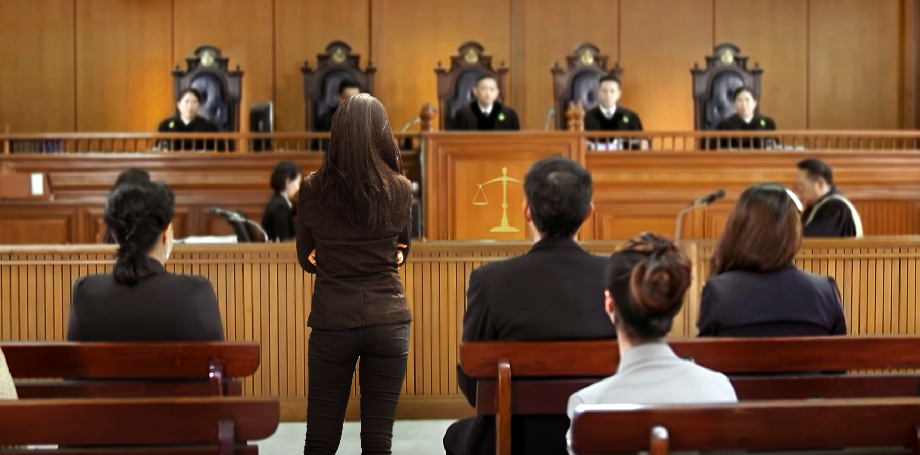Administrative Review Tribunal (ART) & Court

In Australia, when a visa application is refused or a visa is cancelled, applicants may have the option to seek a review of the decision. This can be done through the Administrative Review Tribunal (ART) or in some cases, through the court system.
ART
The Administrative Review Tribunal (ART) process is a key pathway for individuals in Australia who want to challenge decisions made by government departments, including decisions related to visas, citizenship and other immigration matters. The AAT provides an independent review of these decisions and allows applicants to present their case for reconsideration.
Appealing at the ART can be a daunting and intimidating process, as it is the last stage for merit review. In merit review, you can bring in new evidence to support your claim. And the ART is informal and user-friendly.
There is strict time limit to apply at the ART. You will not get second chance to apply if you miss the time limit.
How Case Can Be Represented Properly
We can do following for you at the hearing:
- We properly prepare you for hearing
- We usually interview you until we get all the facts and truth
- Receive all documents relating to the review on your behalf
- Communicate with us on your behalf
- Give us written evidence and written submissions on your behalf
- Attend the hearing
- We present the evidence clearly
- We apply the relevant law and policy to better represent your case
- We implement our practical experiences to make your case better
- We provide you with support during hearing
- We make better closing statements based on the hearing
- We may direct the adhering according to relevant law
At the ART, the Member is not testing your English language. The Member is looking for truth and it is up to you to explain your position and situation properly. It does not harm your case if you speak in your language. We highly recommend using interpreter if you are not comfortable to speak English throughout the hearing. The interpreter is provided free of cost by the ART.
Court
After the ART, you can appeal limited cases at the below Courts:
- Federal Circuit and Family Court of Australia (FCFCO)
- Federal Court of Australia (FCA)
- High Court of Australia (HCA)
The Federal Circuit and Family Court of Australia (the Court) can review certain types of decisions under the Migration Act 1958 made by the Minister for Immigration, Citizenship and Multicultural Affairs (the Minister), the Department of Home Affairs (DOHA), the Administrative Appeals Tribunal, and the Immigration Assessment Authority.
The Judge who is hearing your case does not look at whether you should or should not be granted a visa. The Judge can only review a decision of a decision maker to see whether a ‘jurisdictional error’ has been made. This means the Judge looks at whether the decision maker made the decision properly, following the correct legal procedures and applying the law correctly.
Court Work
If the Judge finds a jurisdictional error, the Judge can:
- Refer your case back to the ART or the DOHA, and
- Prevent the Minister from acting on the decision
The Judge cannot:
- Reconsider the facts and reasons for your visa application
- Take new factual information into account (unless it is relevant to a question of whether the decision maker made a jurisdictional error)
- Grant you a visa
The Court cannot make decisions as to whether you should receive a visa before your case is decided. Visas are a matter for the DOHA.
You must file an application for review, together with other documents that support your case within 35 days of the date of the migration decision (which may be different to the date on the notification letter you received). You can ask the Court to extend the 35-day time limit. If you need a time extension, you must ask for it in your application and explain why you need it.
After the Court has accepted the application, you have to notify the Minister and the DOHA by ‘serving’ the application form and other documents on them. The Minister or the DOHA must respond within 28 days after you serve them.
Jurisdictional Errors
The examples of jurisdictional errors include the following:
- Not adopting a fair process in making the decision
- Identifying a wrong issue
- Ignoring materials which they were required to look at
- Relying on materials they should not have looked at
- Incorrectly interpreting or applying the law
- Reaching a decision that is unreasonable in the legal sense
- Making a decision for which there was no evidence, or that was not reasonably open on the materials
The appeal applications at the Courts are based on claims of legal error or jurisdictional error in decision-making processes by the ART or Department of Home Affairs (DOHA).
It is very hard to prove jurisdictional error. In addition, it is time consuming, very expensive and stressful.




